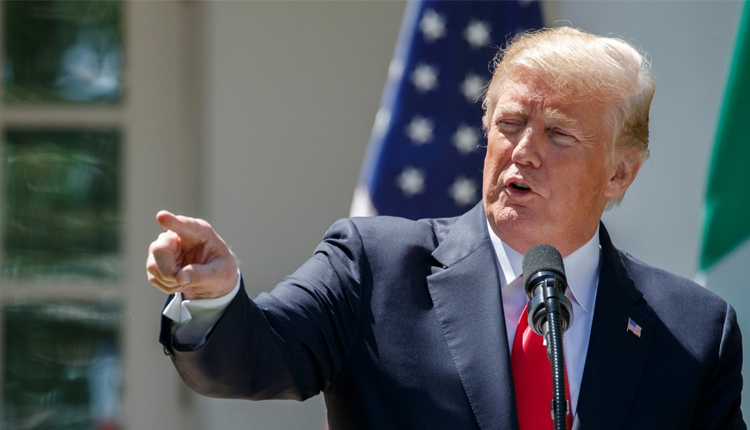The threat of auto tariffs is back on the agenda, and Japan could be U.S. President Donald Trump’s new “number one target.”
In a recent conversation with the Wall Street Journal, Trump described his good relations with the Japanese leadership but then added: “Of course that will end as soon as I tell them how much they have to pay.”
“The president likes to pick trade fights,” said Derek Scissors, Asia economist at the American Enterprise Institute, a conservative public policy think-tank based in Washington D.C. He added that, if a new NAFTA deal is signed with Canada and Mexico, then those countries would be exempted from the ongoing American auto investigation. Given that the European Union has already won an exemption on such tariffs, that would make Japan — a key U.S. ally in Asia — “the number one target.”
“There’s a U.S. investigation into auto imports on the grounds of national security, which is a little strange. But, if you take Mexico, Canada and the EU out of it, Japan is the obvious target of that investigation into autos,” he told CNBC’s “The Rundown.”
Although Trump may have been referring to other costs he could hit Japan with, Scissors said autos is the most likely course of action: “We have an investigation open on Japanese cars and other cars, but we haven’t taken any action along those lines.”
The Trump administration launched a national security investigation into car and truck imports in May, under Section 232 of the Trade Expansion Act. The United States is threatening to push tariffs of up to 25 percent on imported cars and parts, on top of a 25 percent tariff on steel and 10 percent on aluminum already announced.
The U.S. administration is still deciding whether to impose the measures as part of its efforts to protect American automakers and drive down the trade deficit.
Counting the cost
Japan’s trade imbalance is the third largest of all major U.S. trading partners, just behind China and Mexico, according to the census bureau. The $54 billion trade deficit in automobiles and parts accounts for three-quarters of that overall figure.
“A trade deficit can be cause by unfair practices, but in the Japanese case, we haven’t seen the Trump administration say what’s wrong with what Japan is doing — so I think it’s a bad claim on the president’s part,” Scissors said.
The American tariff threat is also tool for leverage over Japan — which is under pressure from the White House to form a bilateral trade agreement. Tokyo is opposed to an exclusively American deal and has voiced its preference for a more diverse multilateral agreement.
“The question is whether the president is threatening autos and other issues in order to make a bargain, or to cause an extended conflict,” Scissors said.
“I think, in the Japanese case, he wants an offer from Japan.”
Hardest hit
Higher tariffs could be particularly painful for Asian automakers including Toyota, Nissan, and Honda, which count the United States as a major market. The tariffs could also hurt the Japanese economy: Automobile exports are a key plank of the country’s exports.
However, analysts at geopolitical intelligence firm Stratfor said Japan could be insulated to some extent from U.S. trade action because of the many Japanese production facilities in the United States.
U.S. and Japanese officials will continue to hold talks ahead of an anticipated meeting between Trump and Japanese Prime Minister Shinzo Abe on the sidelines of the U.N. General Assembly at the end of September.
Source: CNBC
